Εικονικές δικαιοπραξίες στην Κοζάνη του 19ου αιώνα
Ενότητα:
Μελέτες Ιστορίας Δικαίου
Τίτλος μελέτης
Εικονικές δικαιοπραξίες στην Κοζάνη του 19ου αιώνα
Γλώσσα: Ελληνικά, Νέα (1453-)
Τίτλος εντύπου
Επετηρίς του Κέντρου Ερεύνης της Ιστορίας του Ελληνικού Δικαίου
Γλώσσα: Ελληνικά, Νέα (1453-)
Αριθμός τόμου
44
Είδος εντύπου
Επετηρίδα
Έτος έκδοσης
2012-2013
Συγγραφέας/ Εκδότης
Παληού , Αναστασία Γ.
Περισσότερα...
Αριθμός σελίδων
451-482
Γλώσσα
Αγγλικά
Περίληψη
A.G. Paliou: Fictitious contracts in Kozani during the 19th century The will, as an internal element, is not important in the eyes of the law unless it is stated in one way or another. In that case, it affects and binds on the declaring parties. The will is a major producing cause to achieve a desired legal result and its expression is the legal fact to produce this result. Therefore, there is neither a contract without a declaration of will, nor a legal effect without the coincidence of the will and its declaration. The conflict between will and its declaration is -in modern terms- a defect of the above mentioned contract and when is made on purpose it invalidates this contract as being fictitious and void. Fictitiousness was not unknown in Byzantine-roman law or during the period of post-Byzantine law. In this paper we attempt to outline the various manifestations of voluntary divergence between will and its declaration in contracts of the 19th century in Kozani (a town of Western Macedonia. Greece with about 70.000 residents today). We draw the relevant documentation out of records of two Codes of the Metropolis of Kozani concerning the period between the years 1849-1868 and 1875-1889. one Code with several legal documents concerning the period 1882-1899 and two Codes of the Mixed Ecclesiastical Court (MEC) of Kozani concerning the years 1893-1900 and 1900-1913 (unpublished yet except the lsl one). The expressions "voluntarily and inviolably", “lie confessed with his own lips” or simply "he confessed" in almost every document are an indication that the statement (confession) of the free will to draw up a contract was closely connected to the securing the validity of it. Every contract seems to be drawn up in concordance with the will of the parties concerned, aiming to a legal purpose which at the same time was the cause of the contract. Therefore, it is not always easy to discern if the statement represented indeed the true will of the parties. In other cases, the voluntary divergence between will and statement is quite clear and is flatly framed in the corresponding minutes of court, as in a document dated 13.2.1888 in the Code 1875-1889 (p.267) where it is mentioned that the seller of an arable field. Fotini Gliofa. "gave" the buyer Kotias Baziaki a promissory note of 131/2 ottoman lire "fictitiously signed" by her and her son Mitros "as a pledge" until they would reach to an agreement for the "tapu deed"; then Kotias had to return it to the seller. Very interesting are four more documents in the Code of the years 1882- 1899 concerning on the one hand a deed of purchase (document numbered 84/24/22.10.1889, p.2 in Code) and on the other, statements suggestive of fictitious deeds of purchase (documents numbered 85/25/ 22.10.1889- p.3, 41/84/12.3.1891- p.100 and 225/140/26.4.1892- pp.181-182 in Code). As a mark, we just have to mention two of them: According to the first one document (numbered 84/24/22.10.1889), Giannoulis Theodorou sold “voluntarily and inviolably” to his son in law George Voutiris and to his daughter Panagio his flock, cattle feeds, several furniture, house utensils and other property for 60 lire, sum which the vendees gave to him “all safe” and the seller "alienates all his rights on the transferred property and appoints his son in law and his daughter perfect masters of it”. However, the next document (numbered 85/25/ 22.10.1889), is a statement of the above mentioned vendee declaring that the above deed of purchase is not real but fictitious, issued for the purpose of nursing the seller and his wife during their old age. All the more, it was provided that in case the seller’s son in law evaded his obligations, he had to leave his father in law's house "abandoning everything mentioned in the contract” and getting only 10 lire for his services so far. Also, if the buyer was going to evade his obligations in the year following the statement, the same buyer had to leave the house, getting nothing, not even those 10 lire. The clear and explicit statement of fictitiousness shows us, among others, that the relevant (fictitious) contract was drawn up in full knowledge and agreement of the parties. The fictitious contracts were not concluded with intention to deceive third parties but to cover other non formal agreements, maybe as a way to exercising pressure between the parties or in return for some services such as nursing the aged parents. Both fictitious contract and statement of fictitiousness were registered in the ecclesiastical minute - books. Public statement and registration seem to affect the consciousness of the interested parties as a moral and religious commitment to keep their word and also as a powerful juridical documentation about the validity of each legal action, so that every agreement could not be disputed in a future time. It appears that both statements produced legal results and that he who kept his promise, had the right to demand the fulfillment of the other party’s obligation. Two more records of the Mixed Ecclesiastical Court (documents numbered 26/ 12.10.1894.1.44-47 in Code of the years 1890-1899 and 1/12.5.1900 pp.1-2 in Code of the years 1900-1913) concerning the return of dowry trials where the defendants claimed that the marriage contracts were fictitious, inform us that whoever concerned had the right to dispute a contract or any other legal action for fictitiousness as long as he had and was able to prove a legitimate interest, which obviously consisted of the financial loss the interested party would suffer from a fictitious transaction. It seems that the court valued the substantial proof of documentary evidence and it did not investigate if the presumed fictitious marriage contracts were drawn up by fraud but it confined the proof to whether there was true will to draw up those contracts. The above information the researched archives provided, allow us to estimate that in Kozani of 19th century the fictitious contracts and generally legal transactions were neither unusual nor prohibited. Fictitious contracts not only were binding on the parties as a matter of moral order but they also had a legal force because the ecclesiastical authorities validated them. They generally served a particular purpose and especially to secure the execution of a non formal agreement. In our cases, the fictitious sales seemed to serve the exclusion of excessive financial or property claims in return of some services such as nursing of aged parents. The defect of fictitiousness does not appear to deprive the contract from any legal consequence, but on the contrary, despite the fictitiousness, it produced a legal result, which could be reversed by the will of the parties. On this basis, we could note that both the fictitious contracts and the statements of fictitiousness are an indirect indication of a wide implementation of some basic principles of contract law, the principles of contractual freedom and of respecting contracts (pacta sunt servanda).-
Θεματική ενότητα
Μεταβυζαντινό δίκαιο-Αστικό δίκαιο-Γενικές Αρχές
Μεταβυζαντινό δίκαιο-Αστικό δίκαιο-Οικογενειακό δίκαιο
Εκδόσεις πηγών του δικαίου
Σχόλια
Βλέπε την έκδοση των εγγράφων στη συλλογή Νομικές πηγές της Μεταβυζαντινής περιόδου και του Νεοτέρου Ελληνισμού
Λέξεις-κλειδιά, συναφείς ἠ αναφερόμενες νομικές πηγές
Λέξεις-κλειδιά: Κοζάνη-εικονικότητα-διακιοπραξία -σύμβαση-αγοραπωλησία-εικονικές δικαιοπραξίες-εικονικές συμβάσεις-βούληση-διάσταση βούλησης και δήλωσης-γηροκόμηση. Keywords: Kozani- fictitiousness - contract - fictitious - will/desire - declaration - statement - conflict - sale - agreement - nursing aged parents.
Creative Commons
Αναφορά Δημιουργού - Μη Εμπορική Χρήση - Παρόμοια Διανομή 4.0 Διεθνές - CC BY-NC-SA

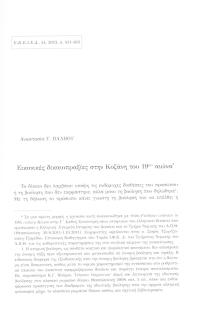
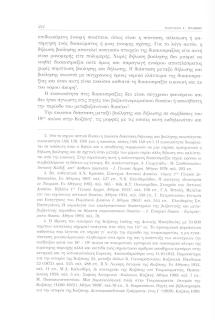
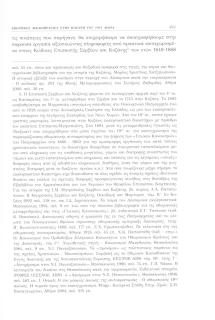
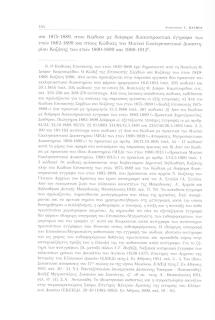
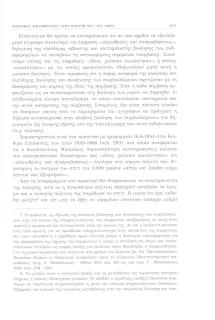
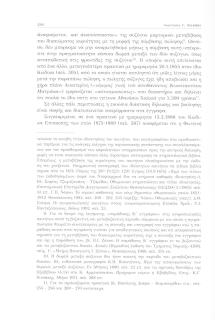
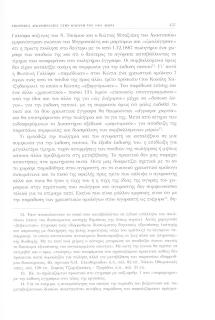
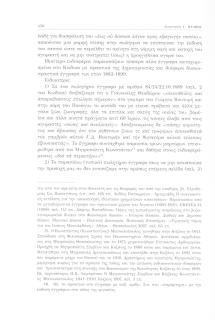
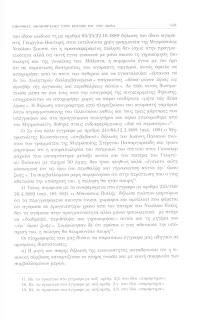
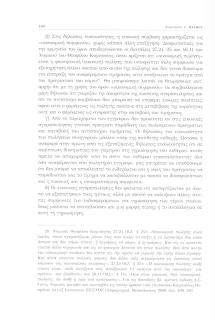
 Voir le fichier PDF
Voir le fichier PDF